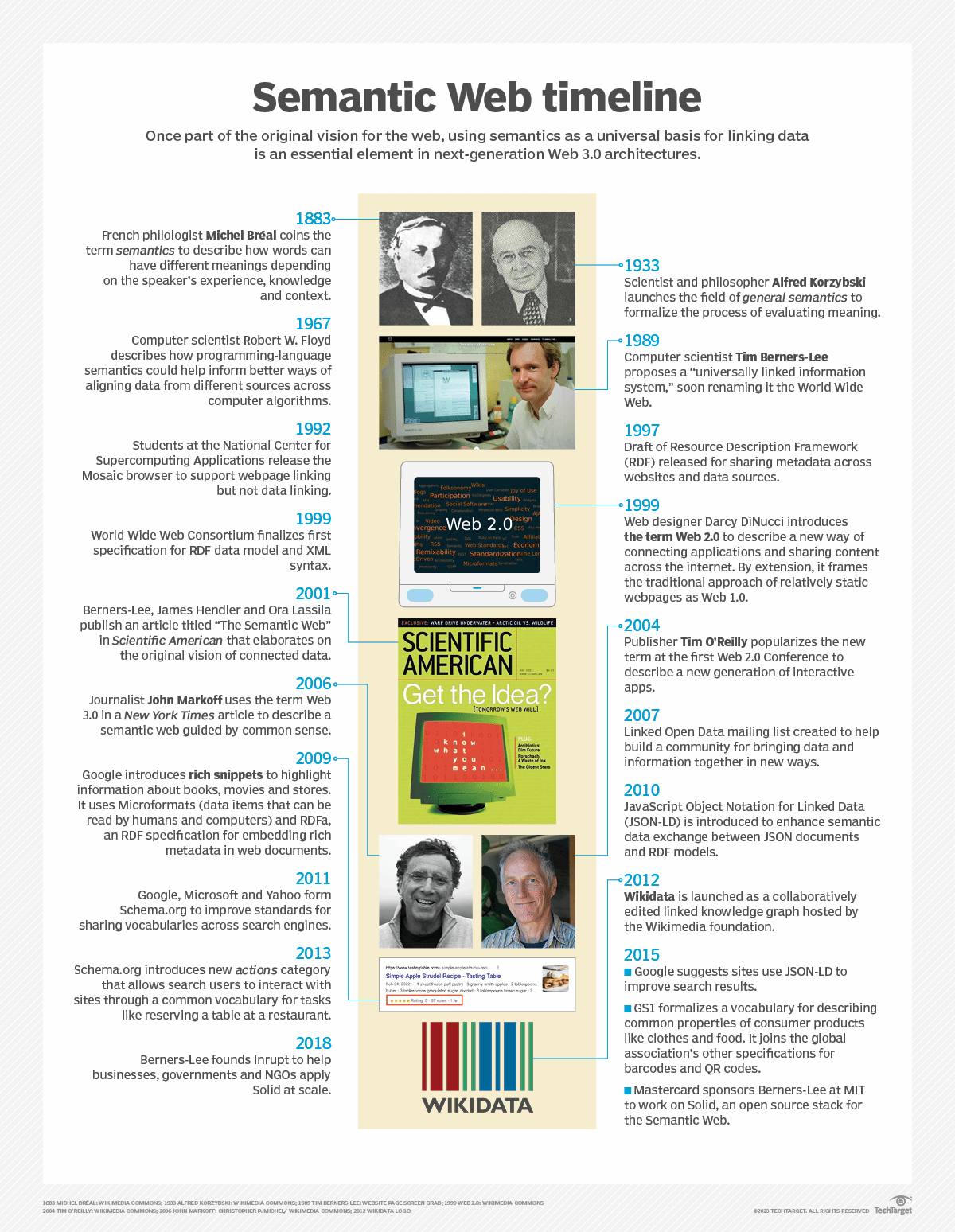It's all in the semantics
Lately, there has been a ton of discussion in the data industry about knowledge graphs.
So what is this cool new shiny thing? Well, the concept itself is actually an old one. It’s the Gen Alpha version of something called the Semantic Web, the OG framework that enabled the creation of platforms like Wikipedia by establishing ontological relationships between data entities. It was the result of collaborative efforts led by Tim Berners-Lee and his team of researchers in understanding how to structure data on the Internet. Tim, who was also behind the invention of the World Wide Web.
Why are we talking about this now?
Semantic technologies are expected to play a significant role in realizing the vision of Web 3.0 by enabling machines to comprehend and interpret data more effectively. There are endless possibilities in teaming semantic networks with AI language models to bind the data into meaning and context.
Microsoft Research's recent publication on the GraphRAG concept is particularly fascinating. In short, LLM-generated knowledge graphs provide substantial improvements in question-and-answer performance when conducting document analysis of a complex information model. It has an ability to reason and validate the generated information by having the web of entities and their relationships in the background. Here’s the link to the article.
I believe that the dynamic duo of knowledge graphs and AI are about to take us to some pretty wild places. Just imagine the scientific possibilities of multimodal systems in interconnected data structures with AI.
In healthcare, for instance, integrating data from genomics, microbiomes, and medical imaging can lead to precision medicine, tailored treatment plans with our digital twins and eventually, predictive healthcare.
Understanding our environment and climate by connecting complex cross-discipline data on a global scale.
*Add your favourite major world problem.*
Ok, there might be a few issues to tackle first but the opportunities arising are very intriguing, to say the least.
With this development, I’m gladly fast-forwarding to the post-post-industrial renaissance lifestyle allowing people to focus their time in activities that mainly require emotional IQ, creativity and social skills. Our primary task will shift to reconnecting with our unique abilities such as metacognitive skills and wandering thoughts. We will have more time to think, discuss and build relationships.
The only problem is, can we learn to be collectively human again?
Written by Eevamaija Virtanen, Senior Data Engineer @ Knowit


